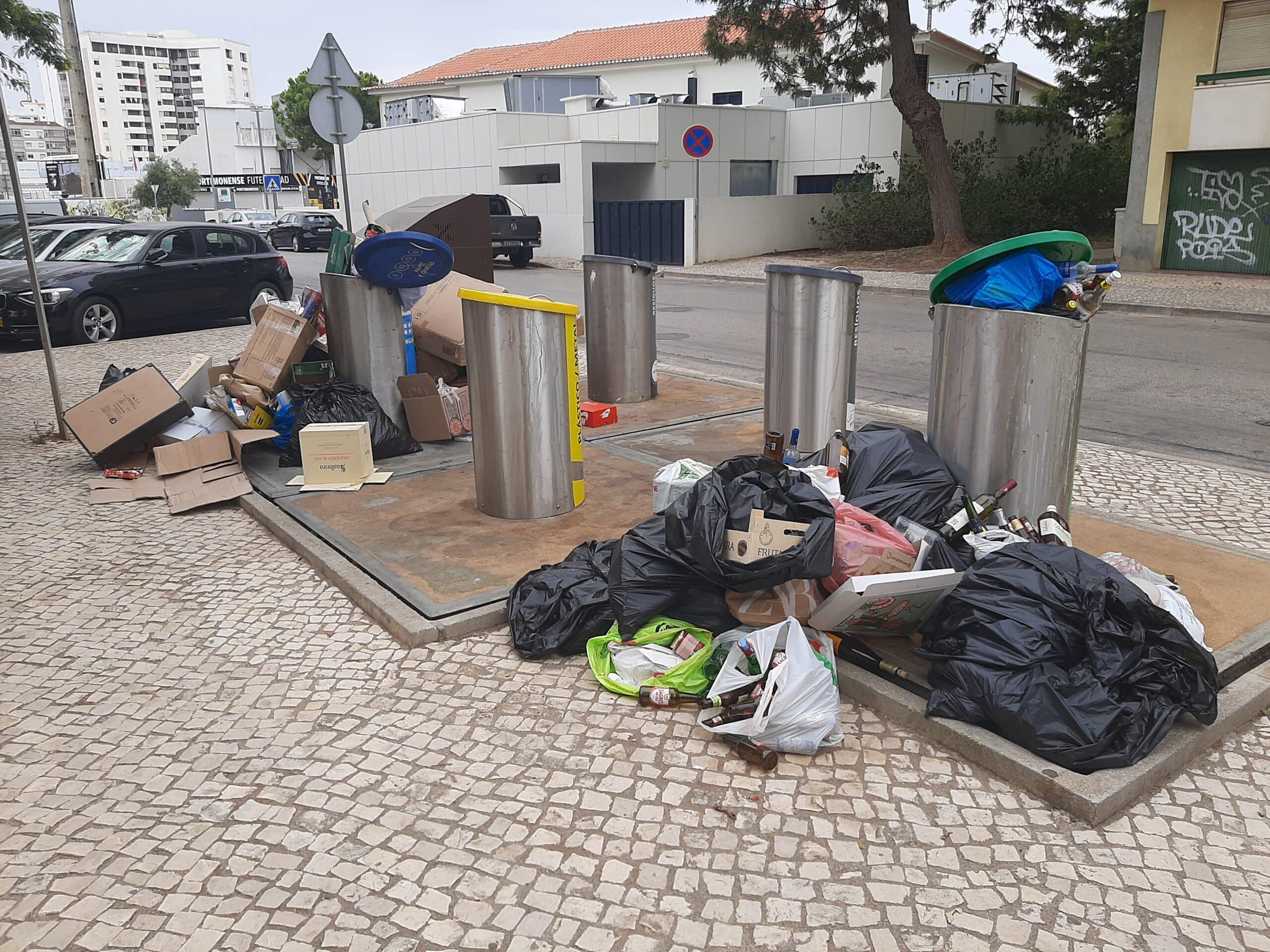A study has found tourists generate more than twice the daily rubbish of local residents, posing major issues for the Algarve during the busy summer months
Tourism may be the backbone of the Algarve’s economy, but it’s also piling up a major challenge in the form of excess rubbish.
According to a new study presented in Vilamoura on Wednesday, tourists generate more than twice the daily rubbish of local residents in the Algarve during the high tourism season, putting enormous strain on the region’s waste management systems and representing major costs.
This has become all too apparent in recent summers when rubbish bins begin to overflow, as waste collection services are unable to cope with such a huge spike in rubbish volume during the summer months.
The study, entitled ‘The implications of tourist activity in the Algarve region for urban waste management’, brought together researchers from five universities in Portugal and the United States and revealed the “urgent need to define sustainable solutions to deal with the environmental and economic impact caused by high tourist seasonality”.
Its findings paint a stark picture: in August alone, tourism accounted for 41% of the Algarve’s waste production, equating to 3.6 kilograms of rubbish per overnight stay – double the output of a local resident.
“Tourism is fundamental to the Algarve’s economy, but we need to ensure that its growth doesn’t jeopardize the region’s sustainable development,” said Eduardo Cardadeiro, a professor at Universidade Autónoma and the study’s lead researcher.
For context, the Algarve registered 29 million overnight stays in 2023, with 82% concentrated in the summer high season. This seasonal surge drives waste management costs to unsustainable levels, since the total cost of waste management in 2023 was €81.3 million, with average costs significantly higher in the high season, reaching €436 per tonne for undifferentiated waste, compared to €147 per tonne in the low season.
The study also reveals that more than 80% of the Algarve’s municipal waste is currently landfilled, while recycling and reuse rates are below 15%, below the targets set by the European Union for 2035. Furthermore, researchers identified the need to implement measures to fulfil the targets set by the European Union and promote a circular economy and sustainable practices for the Algarve.
The study’s next phase, planned for 2025, includes a pilot project aimed at overhauling waste management in the Algarve. Proposed initiatives include dedicated waste collection circuits, tailored to tourism hotspots, in collaboration with local entities like Algar (responsible for recycling), the Algarve Intermunicipal Community (AMAL), tour operators, hotels, and restaurants, and the development of performance indicators to track environmental, social, and sustainability outcomes. If successful, these measures will be expanded region-wide in a third phase, creating a scalable blueprint for tackling waste in other tourist-heavy regions.
The study on the treatment of municipal solid waste in the Algarve was promoted by the Centre for Research in Economic and Business Sciences (CICEE), in partnership with the University of the Algarve and with the support of Algar.
Source: LUSA




















